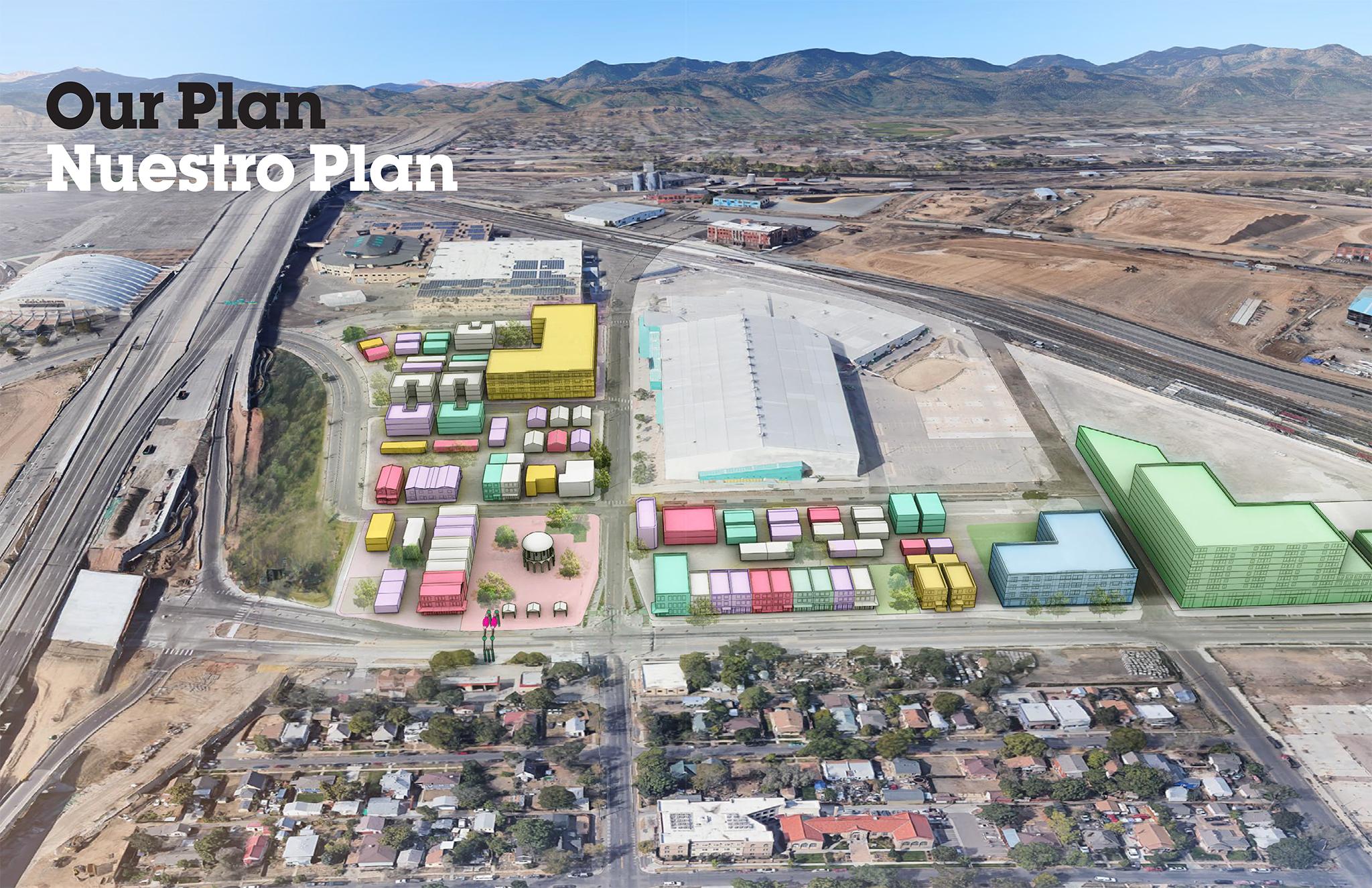Gilbert Herrera Sr. remembers the day it was over for his family's home on Baldwin Court. It was 1999 and the city needed a new onramp, so bulldozers were poised to raze the corner of north Denver where his family grew up. Herrera's daughter refused to abandon the house.
"That was her home, and she didn't believe in none of this. They had already took the doorknobs off and she still continued to live there," he remembered. "So they came and they told her, 'If you don't leave, we are bringing the police in. Here comes the bulldozer.' And I said, 'My daughter, you better leave.'"
His family relocated a short distance to Globeville, where they remained as more of their old neighbors' homes emptied and disappeared. Most were destined to become parking lots; some were saved and never used again.
This section of Elyria Swansea, tucked in a corner where Brighton Boulevard meets I-70, is known today as "the triangle." It's the last parcel to be redeveloped in the National Western Center's massive revamp project; the place where former Mayor Michael Hancock tried and failed to build an arena during his last term in office.
Community activists have been pushing for a different vision here for years. They want residential and commercial revitalization centered around people who actually live in this neighborhood, who tend to be less white, less wealthy and less healthy than the rest of the city. In 2021, they protested to get Hancock's attention on their vision. For Mike Johnston, Hancock's successor, they tried a charm offensive.
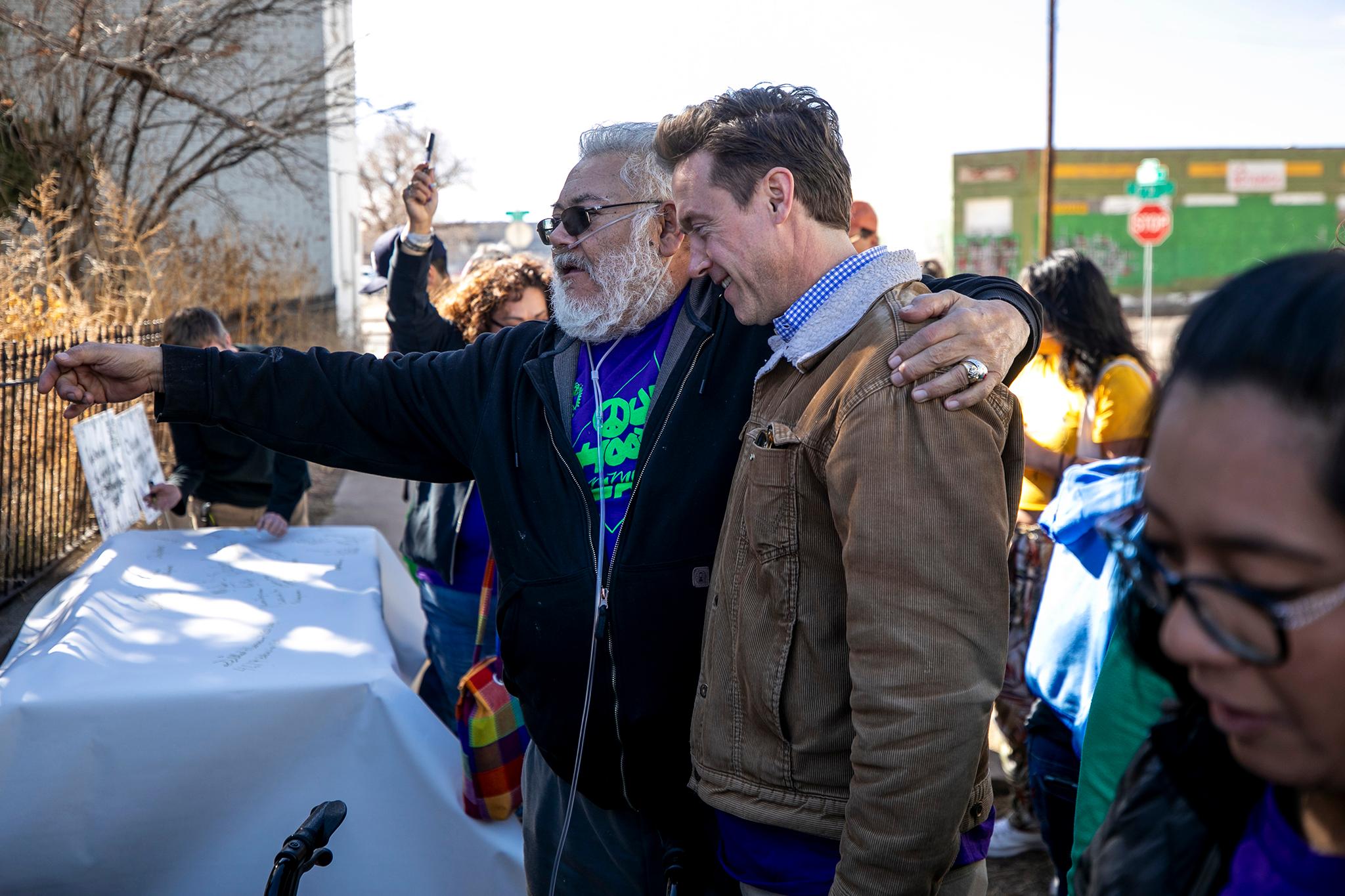
On Saturday, residents led by the nonprofit GES Coalition took Johnston and members of his administration on a tour of the area. The residents wanted to show Johnston how they're already supporting neighbors and they asked him to give them meaningful control of the triangle's fate.
Gilbert Herrera and other residents are hoping their old neighborhood will someday be a place for them again.
While Johnston didn't agree to any specifics, he said he would work to make sure these neighbors were central to whatever happened here.
"I am committed to there being a structure of some sort of community ownership on this triangle. So I'm committed to that truth going forward," he told his hosts. "I'm committed to starting that partnership, and working together to figure out what the right structure would be long term."
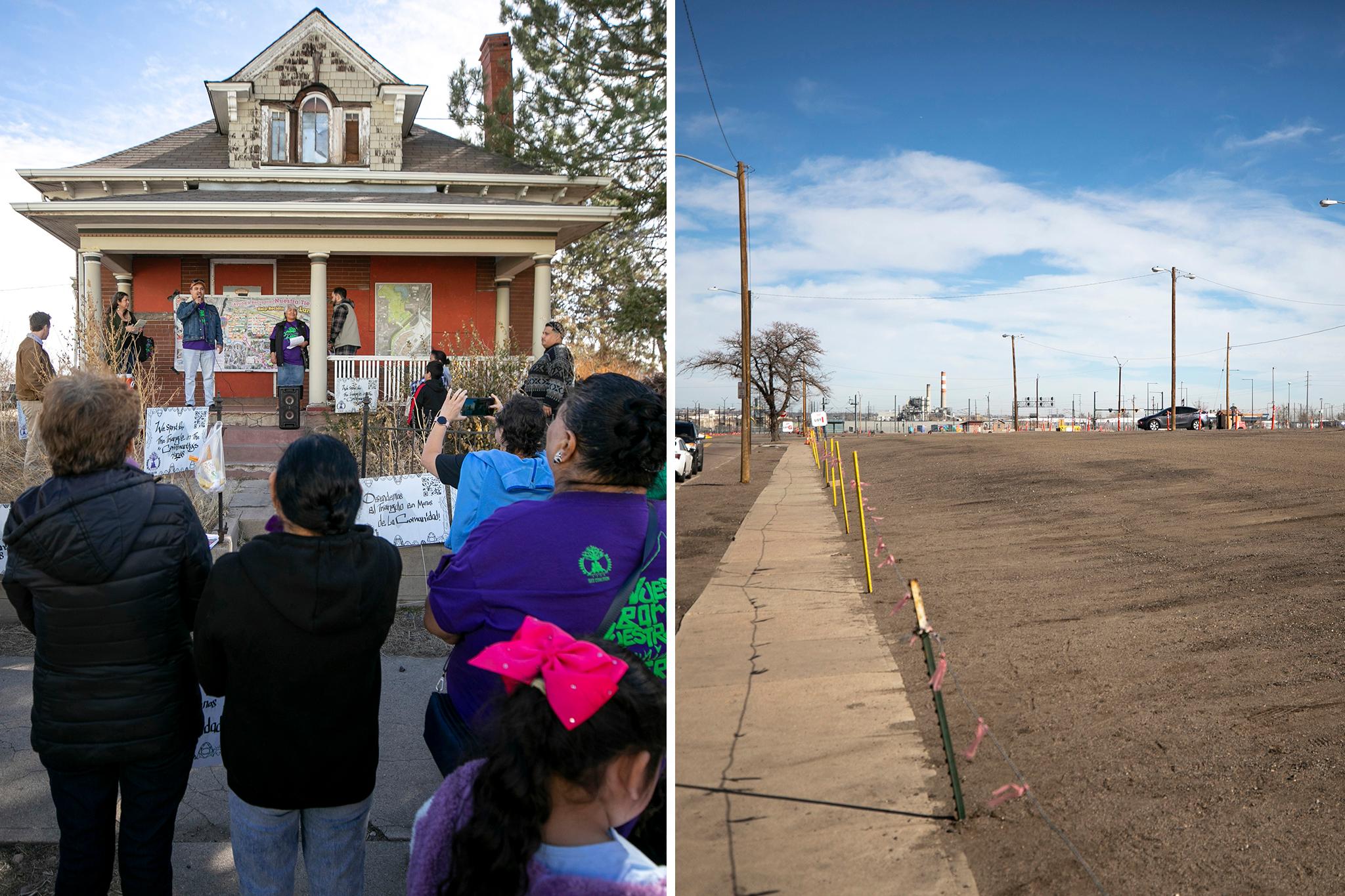
Residents want housing, local businesses, a "People's Plaza" and a partnership.
The GES Coalition had a full morning planned for the mayor, starting at the Birdseed Collective's community center in Globeville, then boarding a bus for a guided tour en route to the triangle.
As they passed an old church that was once a community center, Ana Varela, a Coalition member told Johnston: "I'm speaking it out loud and manifesting that the community will reclaim and own that church. Right now, it's just abandoned. It's sitting empty. The city owns it."
Next, they drove by an empty lot on Washington Street where the Coalition plans to build housing and maybe a library, as part of their Tierra Colectiva land trust effort. Then, new homes sitting on parcels also owned by the land trust, where people are living and paying rates they can afford.
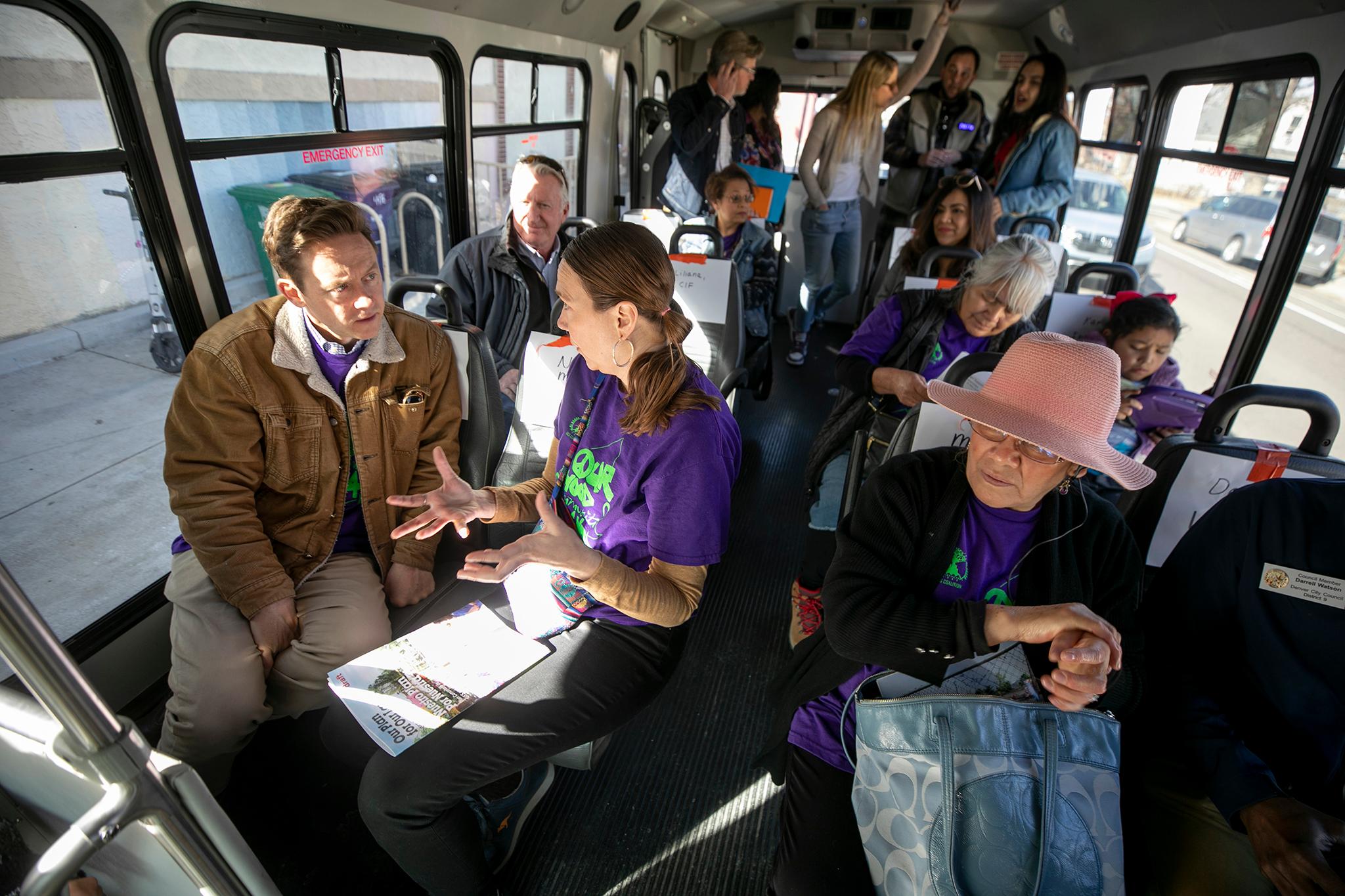
This was a preview of what the nonprofit could do if Johnston gave them the keys to the triangle, they said.
"This triangle is currently empty parking lots, and some of the remnant homes from the latest iteration of the use of imminent domain. And they weren't always empty parking lots. And I just want to be clear that this wasn't a passive act," Alfonso Espino, a longtime resident and Coalition advocate, told a crowd gathered around one of the few homes left on Baldwin Court. "It wasn't by accident or because people chose to leave. It was a project backed by the City and County of Denver."
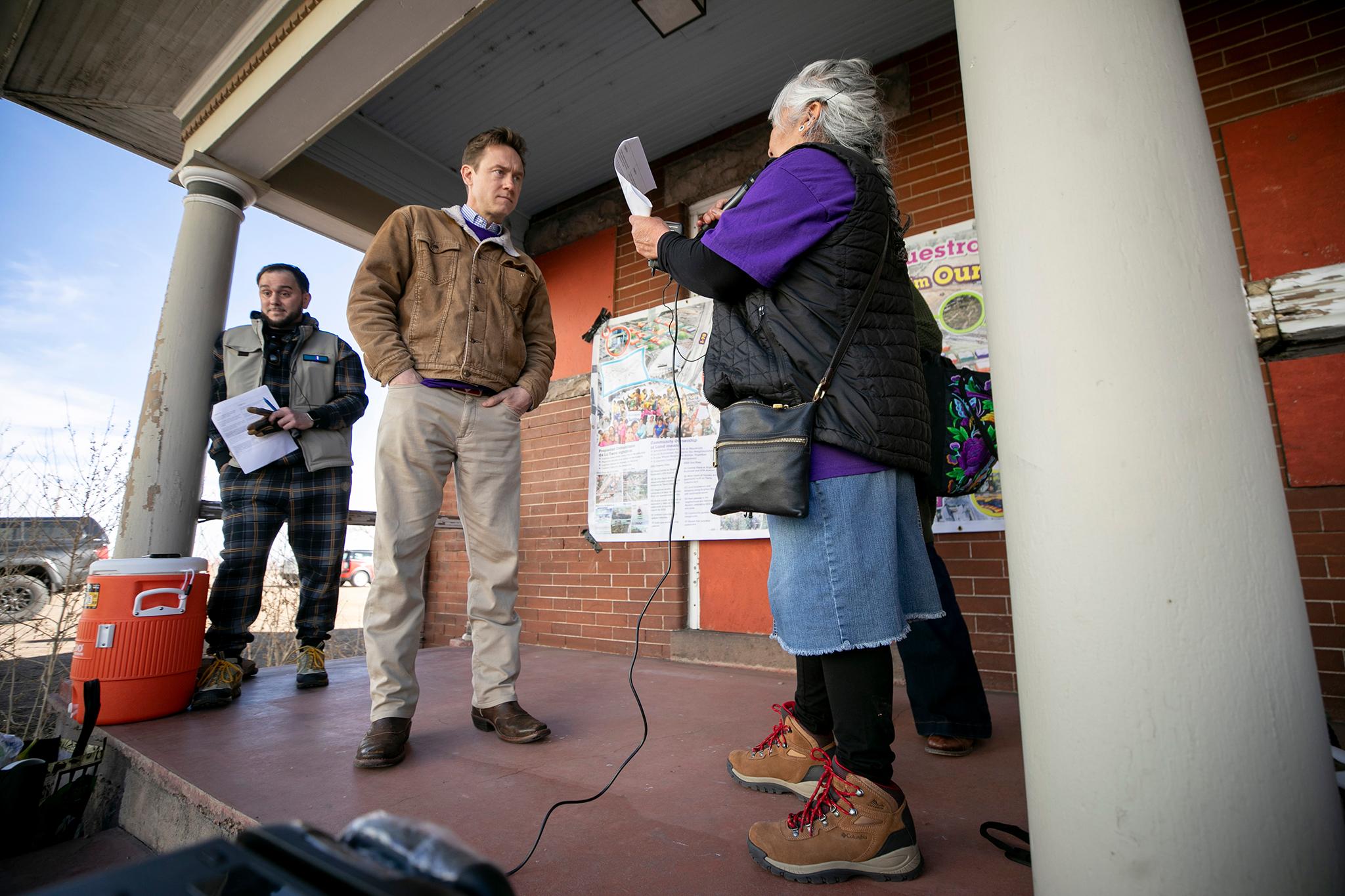
To rectify the sins of Denver's past, the GES Coalition presented Johnston with their plan of action, a draft that they say will be published online in the next few months. It calls for new townhomes, duplexes, apartment buildings and cottages, distributed across blocks of varying density. They want retail space along Brighton Boulevard, geared towards local business owners, with apartments above. Their sketches include a garden, playground and a "People's Plaza," or "Plaza del Pueblo," that's imagined in renderings as a large square surrounded by foliage and anchored by a performance stage in the middle.
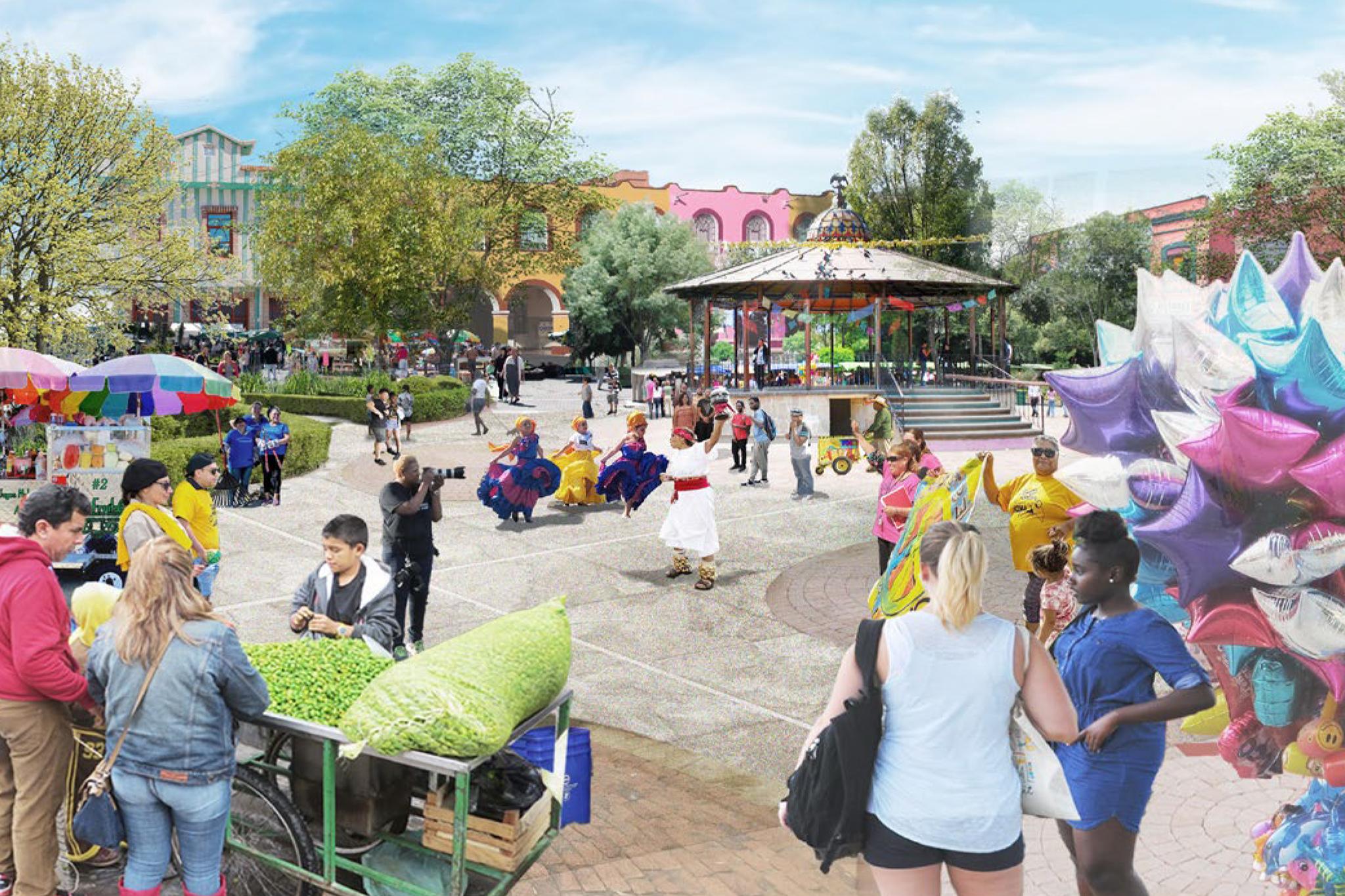
Courtesy: GES Coalition & HECTOR Urban Design
Johnston may be open to building something the community wants, but where the buck stops is still an open question.
Throughout the tour, Elyria Swansea residents repeatedly asked the mayor if he'd commit to their vision. He answered that he was a "strong supporter" of "community-based ownership" for the site, but he stopped short of saying how that should work.
"There are many ways to structure community ownership. We'll want to have home ownership, we'll want to have affordable rentals, commercial space. We'll want to have community space," he told them. "All of those require a great deal of complexity for us to plan together. That is the planning I want us to begin, I just want us to know those are all options on the table."
Nola Miguel, director of the GES Coalition, said she was glad to hear Johnston express his support for their goals. Still, she said she wished he'd commit to putting this project directly in her organization's hands. For her, it's the only way to ensure future development doesn't veer from neighbors' interests.
"We want it to go into the land trust. It has a community governance, it has a community membership. That's why we created it. It's community directed," she told us. "We don't want just community engagement of some sort. We want a true, equal partnership, where the equity is actually equitable, where the land is owned. So then we have that control, so that throughout the whole process there's community checks of not only how it's happening and what's happening throughout the process, but then the outcomes."
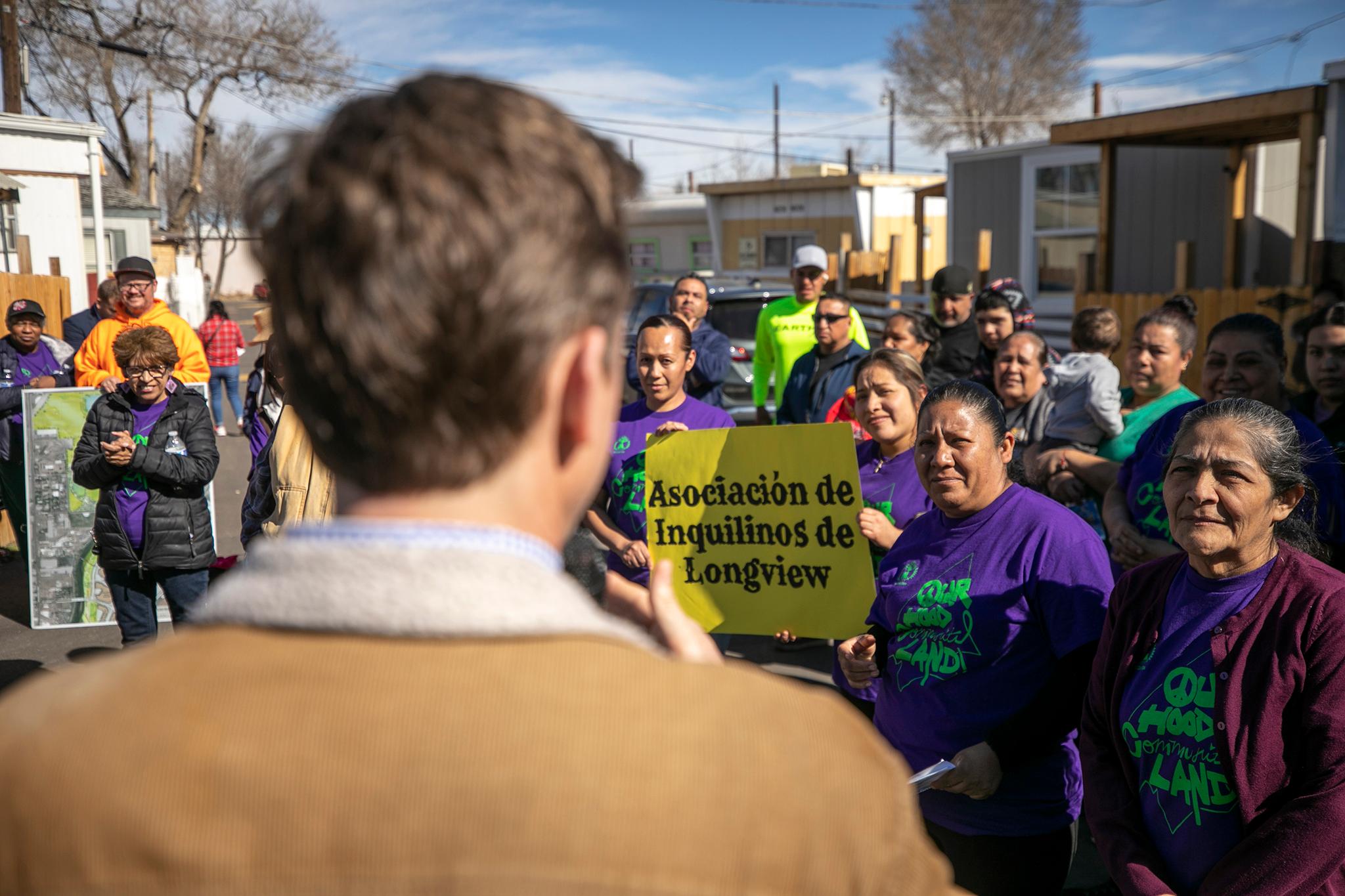
Johnston said it's more likely that a "patchwork" of owners would move into the triangle, the GES Coalition's land trust alongside other nonprofits. He also said he's eyeing some newer ways to approach the financial piece of this, particularly a "neighborhood investment trust" that could make individual residents shareholders in future development.
"There are things like, yes, home ownership and land trusts, but there are also even more interesting ways to try to get broader community wealth-building here," he said. "A lot of very interesting financial tools, and a lot of very compelling needs the community has, and I think there's a way to do both."
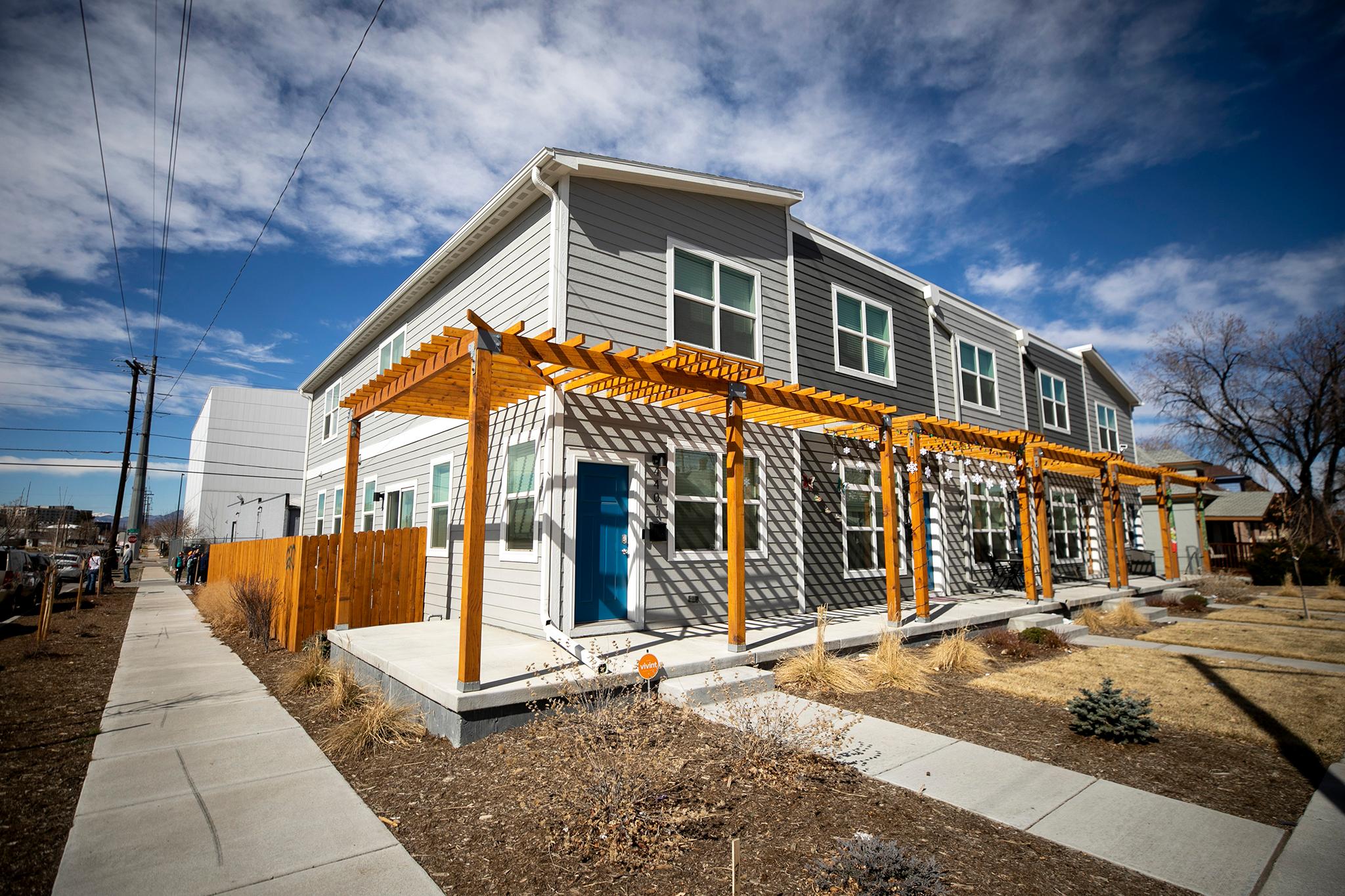
Johnston may be pulled by other interests as he begins to engage with the triangle. Brad Buchanan, CEO of the National Western Center Authority, said former Mayor Hancock's arena plan is still on the table, at least according to the center's 2015 master plan.
"There are elements that need to be stood up on the triangle," he said. "The arena to replace the Coliseum, a solution for what happens with the Coliseum in the future and expo hall space. And then the renovation of the 1909 stadium arena into a year-round public food market."
Still, he added there should be plenty of room to include neighbors' wishes for the parcel.
"There's a lot of land beyond what would be required to do those elements," he said.

